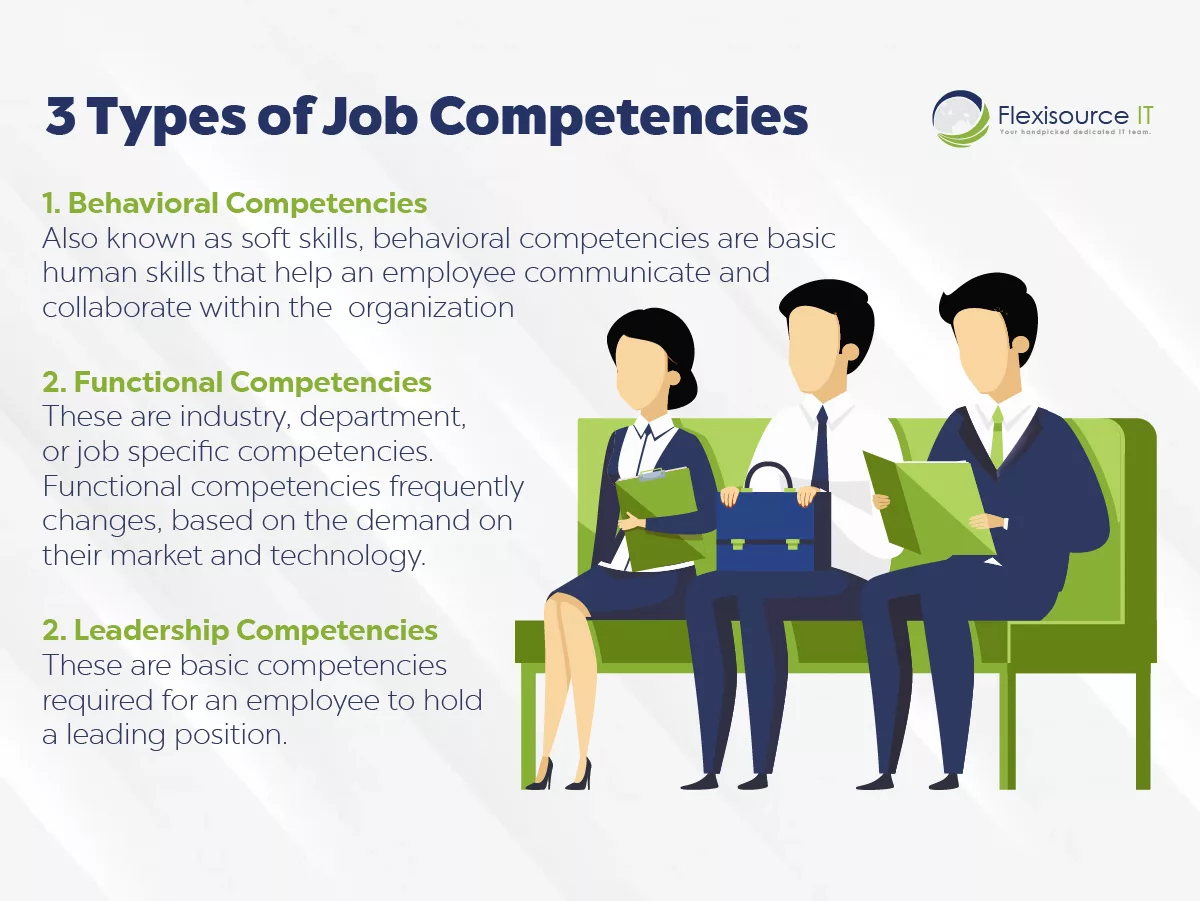As businesses expand, their need for resources and workforce heightens together with their tasks and job scope. They will need to fill new positions and seek a new candidate everywhere. However, finding the right talent could be difficult, despite the abundance of available candidates in the job market right now.
You need to set up requirements and expectations to find the right people, especially if it’s one of the top emerging career paths. You need a list of competencies to evaluate these applicants and tell whether they are good enough for the job.
This article will tackle what job competencies are and why it is essential.
What is Job Competency?
Before jumping to the benefits, first, we need to understand job competency’s meaning. Job competency is a set of skills and knowledge that an individual needs to perform a job. The employer usually defines it and maybe a part of the recruitment process.
In addition, Job competencies allow an organization to understand the expected behavior and level of performance to achieve organizational goals. They provide individuals with an indication of the behaviors that will be appreciated, recognized, and rewarded within the organization.
What are the different types of Job Competencies?
There are three types of Job Competencies – hard skills or function skills, soft skills or behavioral skills, and leadership skills.

Below is the in-depth explanation of each competency, along with some examples.
1. Behavioral Competencies
Behavioral skills are essential to job performance and collaboration with a coworker. These job competencies are the set of attitudes, behaviors, and skills that an individual needs to succeed in a job or position.
Many people think that behavioral competencies are just soft skills. Still, they cover many things, including time management, problem-solving, and leadership. These are all skills that can be learned and improved over time. They may include, but are not limited to the following examples:
- Organizational skills
- Communication skills
- Teamwork skills
- Problem-solving skills
- Initiative and self-starter skills
2. Functional Competencies
A functional competency, sometimes called a job description, is a set of skills and abilities required to carry out the role efficiently. These skills are what the professionals are required to perform or use daily. For example, if the organization requires the employee to work on multiple projects, an essential functional competency would be multitasking.
Likewsie, this would be an essential functional competency because they need employees who can work on many projects at once without becoming overwhelmed or disoriented. Below are some other example competencies:
- Ability to communicate with people over the phone, email, and chat
- Knowledge of office software such as word processing, spreadsheets, and presentation software
- Knowledge of industry terminology
3. Leadership Competencies
Leadership competencies are skills necessary for an individual to be a leader. A leadership position requires a solid commitment to honesty and authenticity, which can be difficult when it comes time to make difficult decisions or deliver bad news.
Likewise, to be influential leaders, they need to motivate those around them with positive reinforcements and damaging consequences when necessary. They also need the ability to delegate tasks appropriately and effectively.
However, these competencies are complex and often tricky skill sets to master. It requires a great deal of empathy and sense and the ability to see things from another person’s perspective.
Why are Job Competencies critical?
Job competencies acted as a framework and basis for years. Employers use job competencies during welcome interviews and exit survey questions to harmonize, select, and develop the employee. Similarly, competencies are essential factors to an organization’s success and concord.
Below are more reasons why job competencies are essential to a company:
- They help employers identify the right person for the job.
- They help employees know what skills they should develop to be competitive in their field.
- Job competencies are essential because they are the skills that are required to do a job. They help to ensure that employees have the skills necessary for the position.
- Competencies also help employers know what training needs may exist to provide employees with the necessary training opportunities.
- Employers need to know what skills their employees possess and what skills they lack to help them find solutions more quickly.
What are the benefits of job competencies?
For Employers, Job competencies can help identify the skills and knowledge needed to perform a specific job for businesses and employers. Similarly, it determine whether or not an applicant has the skills and knowledge required for the position.
Likewise, it provides a way to measure an employee’s performance against the expectations of their job description. Job competencies can help managers evaluate an existing performance and identify strengths and weaknesses in an employee’s performance and what they need to improve.
Likewise for hiring purposes. It can help a company identify the best talent available and create a more diverse workforce by attracting different people. It clarifies what type of person would be the best fit for the job opening. Job competencies also help organizations build better relationships with their employees by understanding what they need to do to excel at their jobs.
Top 5 Job Competencies Employers Should Look for In Every Employee
In every job, the required competencies or skillset can depend on the candidate’s role or experiences to fit the job requirements. However, there are specific vital competencies that we should make sure they have as well. These skillsets will help them do their job better and make them more valuable to an organization.
Below are 5 Job Competencies that every candidate should have:
1. Communication Skills
Communication skills allow individuals to transfer information and ideas from one person to another. It involves verbal and nonverbal skills such as listening, speaking, reading, and writing. These skills are essential in all jobs, no matter how mundane or vital the job is. Moreover, It is essential to articulate your thoughts and ideas clearly and concisely and listen attentively and ask questions when needed.
2. Critical Thinking Skills
This is the ability to think about a situation and develop possible solutions or answers. It involves analyzing problems, determining what information is relevant or needed, making connections between different pieces of information, recognizing patterns of logic or reasoning, and evaluating conclusions.
3. Problem-Solving Skills
Problem-solving skill includes identifying problems, generating possible solutions for these problems, and implementing them effectively. It includes identifying the causes of a problem and finding ways to eliminate these. As such, employers need employees who can think creatively about problems and come up with solutions, especially those who work in positions where not many people have been before.
4. Attention to detail
This quality is essential for all positions, but it’s especially crucial for those who work with numbers or data, such as accountants and bookkeepers, and more. Attention to detail is an essential skill in the workplace. It is the ability to notice and remember details, either large or small.
Likewise, Employers should look for candidates who can notice details like typos in a document or missing pieces of information on a spreadsheet. This way, employers can ensure that they are not overlooking any important aspects of their business.
5. Accountability
When it comes to responsibility, accountability is king. Accountability is a crucial competency for any job. It means that you are responsible for your actions and take responsibility for the consequences of those actions. It includes being accountable to yourself, your team, your manager, and your organization.
Conclusion
And that’s it. Job competencies play a vital role in finding the perfect candidate and developing employees. Companies should remember that training an employee is not just for itself. It can help the overall development of your company by upskilling its capabilities and competencies. In the end, you can watch these employees contribute more towards company growth and development through this.
If you are having a hard time looking for the right people to outsource in your company, Flexisource IT can help you. Learn more about our recruitment and acquisition.









